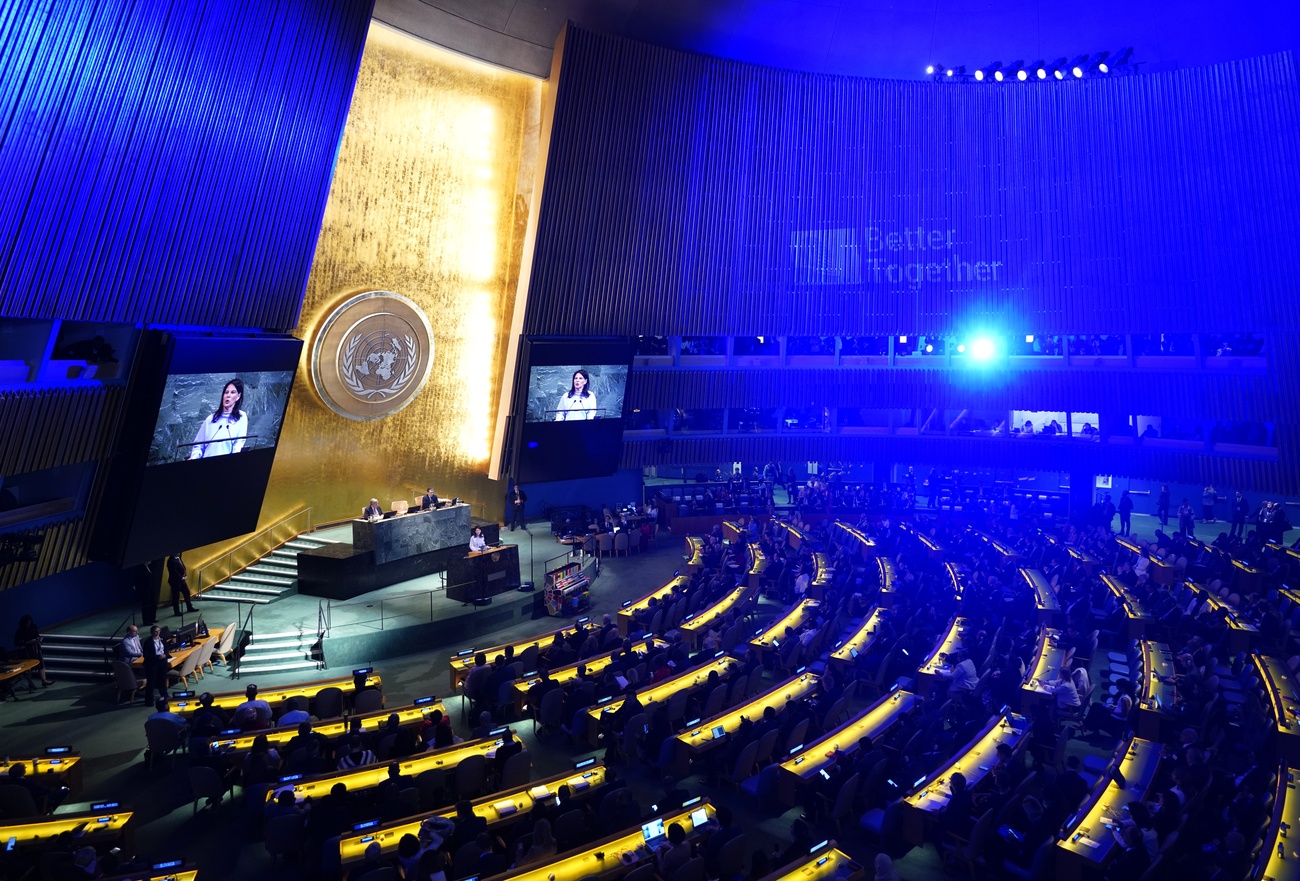
Under 40s name climate change as biggest worry

Young Swiss people are much more concerned about climate change than their peers in other countries, according to a survey by consultants Deloitte.
Global warming was the largest worry for two out of five Millennials – those aged 27-38 years old. Among Generation Z, aged 18-26, it rose to almost half, Deloitte saidExternal link.
It was a different picture among their global peers, Deloitte found in its Millennial Survey 2021, which was conducted among almost 23,000 people in 45 countries.
Globally healthcare/disease prevention was the top concern among Millennials, with climate change coming in third. For Gen Z, climate change was number one. Unemployment came in second place in both categories.
Corona pandemic, idealism
The coronavirus pandemic seems to have affected the under 40s Swiss a lot less than their peers in other countries, according to the details of the survey reported on the Keystone-SDA news agency on Friday.
On the other hand, there was less solidarity among younger Swiss than in other countries, the survey found.
Young people in Switzerland also complained that their employers did too little to help with mental health issues during the pandemic. Firms failed to devise plans to help staff cope with the long-term effects of Covid-19, they said.
Life has changed for young people in the ten years the consultancy has been doing this survey, but their values had not, according to Deloitte’s Veronica Melian. They have kept their idealism and are still fighting for a better world, she said

More
How young Swiss differ from older generations

In compliance with the JTI standards
More: SWI swissinfo.ch certified by the Journalism Trust Initiative



























You can find an overview of ongoing debates with our journalists here . Please join us!
If you want to start a conversation about a topic raised in this article or want to report factual errors, email us at english@swissinfo.ch.